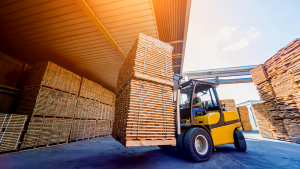The impact of the U.S. government’s tariffs on steel imports, announced in March 2018, continues to spread.
The so-called Trump Tariffs placed steel imported from Canada and other foreign at a competitive disadvantage compared to steel produced in the U.S. by making it more expensive.
In a retaliatory move, Canada soon imposed countervailing tariffs on imported U.S. steel, which restricted the supply of steel brought into this country and raised its price.
“The tariffs and counter-tariffs have disrupted the supply of and demand for steel,” said Dan Ciuriak, director of Ottawa-based Ciuriak Consulting Inc., which specializes in quantitative trade analysis. “They’ve really thrown a monkey wrench into the system, upsetting not just product availability, but also production schedules and supply chains. The government is facing pressure from all sides, and it is trying to minimize the cost of the tariffs.”
But wait — there’s more.
The Canadian government recently announced it is considering the imposition of new trade measures called safeguards that would limit steel imports by way of tariffs and/or quotas.
Canadian primary steel producers say the safeguards are needed to prevent the dumping of foreign steel in Canada, which would hurt the domestic industry.
But steel fabricators, who manufacture such construction products as rebar, and many of whom rely on a stable supply of foreign steel, say the safeguards are unnecessary.
The Canadian Coalition for Construction Steel (CCCS) which represents users, suppliers, fabricators, service centres, and importers of construction steel, has asked the federal government to reconsider the safeguards.
The CCCS says restricting steel imports would be bad news for the Canadian construction industry.
It could create shortages of steel, negatively affect major building projects and put over 60,000 construction sector jobs at risk.
Fifteen days of consultations about the safeguards ended recently. As of mid-September, the federal government has not announced a decision on the measures.
Anoop Khosla, president of Midvalley Rebar Ltd., a Surrey, B.C. fabricator of rebar, has been biting his fingernails.
“Since the announcement of Canadian countervailing tariffs on U.S. steel there has been no steel coming into Canada from the U.S., and more has been coming from offshore sources,” Khosla said. “The threat of safeguards has been making Canadian rebar manufacturers very nervous, because they could be seriously harmed.”
Midvalley has been one of 17 members of CCCS since May 2018, when the group was formed.
Jesse Goldman, an international trade lawyer in the Toronto office of Borden Ladner Gervais LLP and the legal counsel to CCCS, said in an announcement, “We are confident that when the government has all the evidence, it will conclude that steel production in Canada is not at risk. Even if that changes at some point, there are already ample restrictions for unfairly traded steel.”
Steel mills in Canada have the capacity to supply only about one-half of domestic demand for construction steel
— Jesse Goldman
Borden Ladner Gervais LLP
Goldman said that, while it is important to keep Canada’s steel mills in business, “We are certain that, in the broader public interest… the government will make an evidence-based decision that balances the interests of producers and users. No government would put in peril the country’s construction sector that is vital to the national economy.”
Goldman says the construction industry relies on a stable supply of steel to Canadian fabricators.
“Steel mills in Canada have the capacity to supply only about one-half of domestic demand for construction steel,” Goldman said.
“Historically, roughly one-half of the rest has come from the U.S., and the rest from outside North America.”
Constraints on the supply of construction steel are particularly serious in British Columbia and Atlantic Canada, due to the high cost of overland transportation from Canadian steel mills, most of which are located in Ontario and Quebec.
About 90 per cent of construction steel used in B.C. comes from the U.S. or Asia; all of Newfoundland’s supply is foreign.
Alex Carrick, chief economist with ConstructConnect in Markham, Ont., says the steel tariff dispute poses a serious danger to the Canadian economy.
“Steel is very important to the automotive and construction industries,” said Carrick. “The tariffs and countervailing tariffs affect the availability and cost of steel used in them. That adds to inflationary pressures, which are already on the rise.”
Carrick says countervailing tariffs on steel are “probably not” the best way to fight U.S. tariffs.
“Canada needs to think strategically, in order to have a political impact on the U.S. without at the same time hurting Canadian interests,” he said. “An example would be tariffs on products that are produced domestically in quantity that won’t hurt Canada, such as European tariffs on such U.S. products as bourbon and motorcycles.”











Recent Comments
comments for this post are closed